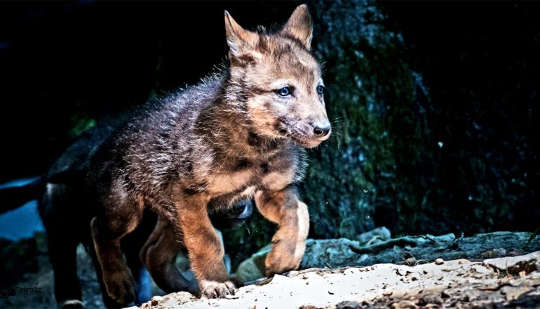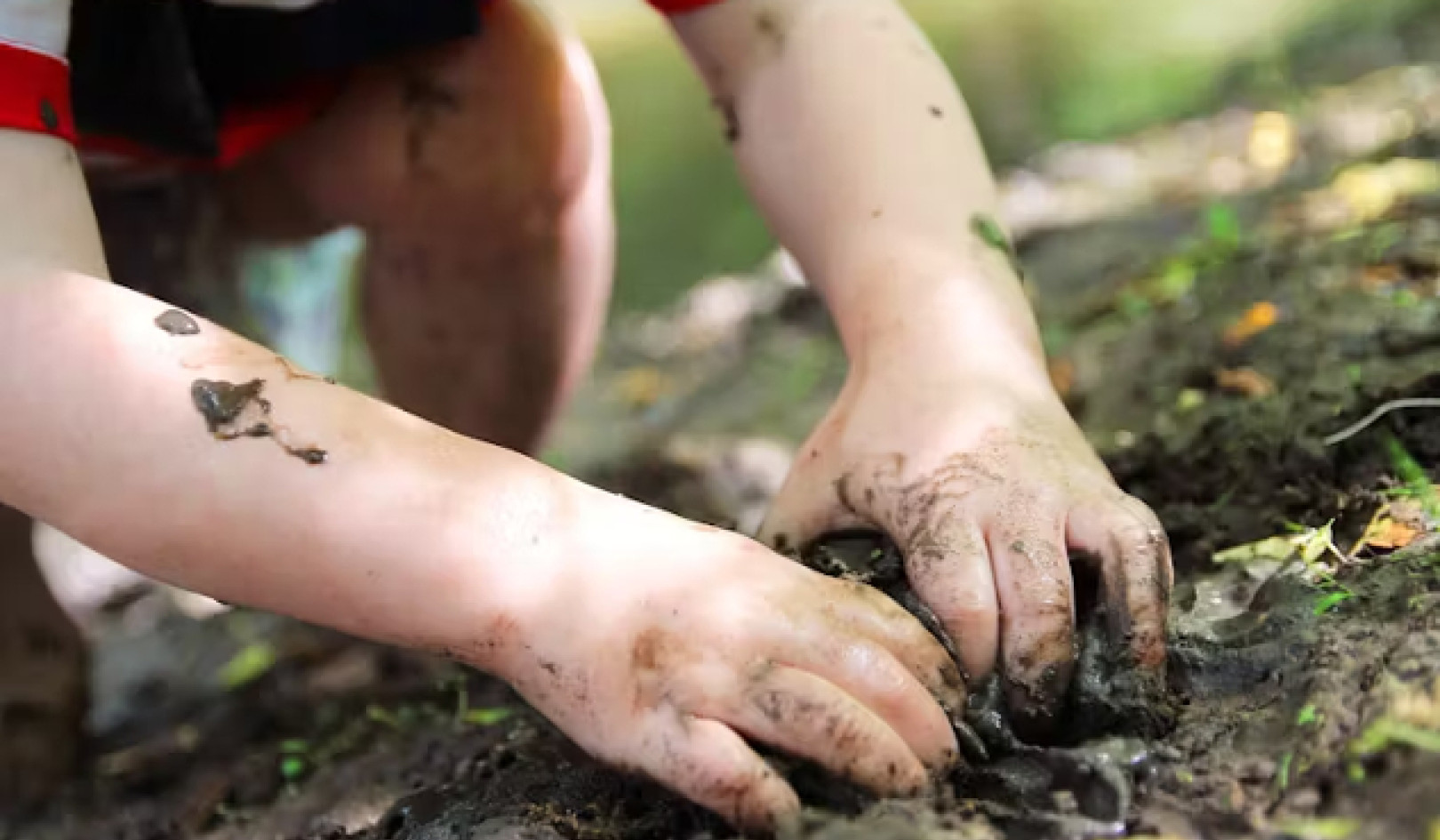
New research comparing dog puppies to human-reared wolf pups offers some clues to how dogs got so good at reading people.
You know your dog gets your gist when you point and say “go find the ball” and he scampers right to it.
This knack for understanding human gestures may seem unremarkable, but it’s a complex cognitive ability that is rare in the animal kingdom. Our closest relatives, the chimpanzees, can’t do it. And the dogs’ closest relative, the wolf, can’t either, according to the new study.
The study in Current Biology, a comparison of 44 dog and 37 wolf puppies who were between 5 and 18 weeks old, supports the idea that domestication changed not just how dogs look, but their minds as well.
At the Wildlife Science Center in Minnesota, researchers first genetically tested wolf puppies to make sure they were not wolf-dog hybrids. The wolf puppies were then raised with plenty of human interaction. They were fed by hand, slept in their caretakers’ beds each night, and received nearly round-the-clock human care from just days after birth.
In contrast, the dog puppies from Canine Companions for Independence lived with their mother and littermates and had less human contact.
Then the researchers tested the canines. In one test, the researchers hid a treat in one of two bowls, then gave each dog or wolf puppy a clue to help them find the food. In some trials, the researchers pointed and gazed in the direction the food was hidden. In others, they placed a small wooden block beside the right spot—a gesture the puppies had never seen before—to show them where the treat was hidden.
The results were striking. Even with no specific training, dog puppies as young as eight weeks old understood where to go, and were twice as likely to get it right as wolf puppies the same age who had spent far more time around people.
Seventeen out of 31 dog puppies consistently went to the right bowl. In contrast, none out of 26 human-reared wolf pups did better than a random guess. Control trials showed the puppies weren’t simply sniffing out the food.
Even more impressive, many of the dog puppies got it right on their first trial. Absolutely no training necessary. They just get it.
Puppy power
It’s not about which species is “smarter,” says first author Hannah Salomons, a doctoral student in senior author Brian Hare’s lab at Duke University. Dog puppies and wolf puppies proved equally adept in tests of other cognitive abilities, such as memory, or motor impulse control, which involved making a detour around transparent obstacles to get food.
It was only when it came to the puppies’ people-reading skills that the differences became clear. “There’s lots of different ways to be smart,” Salomons says. “Animals evolve cognition in a way that will help them succeed in whatever environment they’re living in.”
Other tests showed that dog puppies were also 30 times more likely than wolf pups to approach a stranger.
“With the dog puppies we worked with, if you walk into their enclosure they gather around and want to climb on you and lick your face, whereas most of the wolf puppies run to the corner and hide,” Salomons says.
And when presented with food inside a container that was sealed so they could no longer retrieve it, the wolf pups generally tried to solve the problem on their own, whereas the dog puppies spent more time turning to people for help, looking them in the eye as if to say: “I’m stuck can you fix this?”
Domestication hypothesis
The research offers some of the strongest evidence yet of what’s become known as the “domestication hypothesis,” says Hare, professor of evolutionary anthropology.
Somewhere between 12,000 and 40,000 years ago, long before dogs learned to fetch, they shared an ancestor with wolves. How such feared and loathed predators transformed into man’s best friend is still a bit of a mystery.
But one theory is that, when humans and wolves first met, only the friendliest wolves would have been tolerated and gotten close enough to scavenge on the human’s leftovers instead of running away. Whereas the shyer, surlier wolves might go hungry, the friendlier ones would survive and pass on the genes that made them less fearful or aggressive toward humans.
The theory is that this continued generation after generation, until the wolf’s descendants became masters at gauging the intentions of people they interact with by deciphering their gestures and social cues.
“This study really solidifies the evidence that the social genius of dogs is a product of domestication,” says Hare.
It’s this ability that makes dogs such great service animals, Hare says. “It is something they are really born prepared to do.”
Much like human infants, dog puppies intuitively understand that when a person points, they’re trying to tell them something, whereas wolf puppies don’t.
“We think it indicates a really important element of social cognition, which is that others are trying to help you,” Hare says.
“Dogs are born with this innate ability to understand that we’re communicating with them and we’re trying to cooperate with them,” Salomons says.
The Office of Naval Research, the Eunice Kennedy Shriver National Institute of Child Health and Human Development of the National Institutes of Health, and the AKC Canine Health Foundation funded the work.
Source: Duke University
Books on Pets from Amazon's Best Sellers list
"The Beginner's Guide to Dog Agility"
by Laurie Leach
This book is a comprehensive guide to dog agility, including training techniques, equipment, and competition rules. The book includes step-by-step instructions for training and competing in agility, as well as advice for selecting the right dog and equipment.
Click for more info or to order
"Zak George's Dog Training Revolution: The Complete Guide to Raising the Perfect Pet with Love"
by Zak George and Dina Roth Port
In this book, Zak George offers a comprehensive guide to dog training, including positive reinforcement techniques and advice for addressing common behavior issues. The book also includes information on selecting the right dog and preparing for the arrival of a new pet.
Click for more info or to order
"The Genius of Dogs: How Dogs Are Smarter than You Think"
by Brian Hare and Vanessa Woods
In this book, authors Brian Hare and Vanessa Woods explore the cognitive abilities of dogs and their unique relationship with humans. The book includes information on the science behind dog intelligence, as well as tips for enhancing the bond between dogs and their owners.
Click for more info or to order
"The Happy Puppy Handbook: Your Definitive Guide to Puppy Care and Early Training"
by Pippa Mattinson
This book is a comprehensive guide to puppy care and early training, including advice for selecting the right puppy, training techniques, and health and nutrition information. The book also includes tips for socializing puppies and preparing for their arrival.
Click for more info or to order
This article originally appeared on Futurity


























